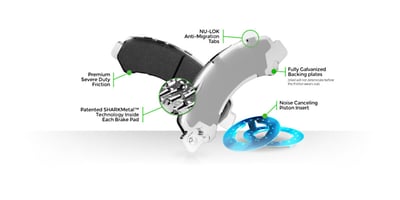FUD, or Fear, Uncertainty, and Doubt, has been used as a marketing strategy for years. It's an old...
A Litmus Test to Determine Which EV Startups Will Succeed

As electric vehicles (EVs) continue to gain popularity, more and more startup companies are emerging, each vying to make their mark in the EV industry. However, with several EV startups failing in the past year, evaluating each company's potential for success has become crucial. In this blog post, we'll discuss a litmus test that can help those invested in the EV industry evaluate which EV startups are to succeed.

The first criterion for a successful EV startup is to have experienced EV designers who have worked for companies like Tesla or legacy OEMs like Ford. These designers will have an in-depth understanding of EV design principles and will be able to adapt quickly to a startup environment. They will know what works and what doesn't, making them an invaluable asset to any new EV company.
The second criterion is to have experts in body-in-white (BIW) line production. This is essential to produce vehicles at volume, making it a red flag if the company's first call results in no expert knowledge of basic line processes like stud welding. Such experts should be part of any serious EV startup company, as they will ensure the production of high-quality vehicles, which will be crucial for customer satisfaction.
The third criterion is to have a team with experience in startup environments. Working in established companies like Honda doesn't necessarily mean you can work in a startup like Rivian because startups have a different structure than established companies. A team with startup experience is better equipped to manage the challenges of running a startup, including funding constraints and fast-paced development cycles.

Fourthly, a successful EV startup must have Tier Partners. Tier partners are the companies that make up the supply chain, providing individual parts and components of a vehicle. These partnerships are a crucial factor in ensuring the success of any new EV company. Battery boxes are one of the most brutal launches for any start-up electric vehicle effort, so using a company like Our Next Energy or Magna International lightens the load for the first launch. Fisker Auto used Magna to build the entire car. This is good for a first launch, but it won't be profitable long-term, and they will have to take over the plant from the tier or build their own.
The fifth criterion is to decide whether the new EV company will work with distributors or buy directly from tier 1 OEMs like Atlas Copco or ITW. VMI distributors prey on would-be EV efforts as most large-tier OEMs won't work with them in the early days. They can find their parts when others won't, but they also offer technical support for a fee. This leads to years of obsolescence and delays because the distributor relies on their vendors for expert experience.

The sixth criterion is the company's battery box/pack experience. Companies with a proven battery technology and management history are essential for new entrants to the EV market, as this technology is the backbone of the entire EV industry.

The seventh criterion is the overall buzz surrounding the company. Are people talking about it? Are they excited about the product? A company's general buzz can be a promising indicator of potential success, as it represents an interest in the company from the public and various stakeholders.
The eight criteria will be a game changer like Tesla castings or tab-less battery design but beware of the GM-like new vehicle announcements or the Toyota 900-mile battery. They are often publicity stunts, and you'll be let down like we were with all the promise that Proterra had.

Finally, whether they have the funding needed may be their most significant qualifier. Rivian is one of our favorites, as we've known since the beginning, but with three programs and a working plant, their burn rate is insane. If a founder can't raise billions or, best yet, already have it in the bank, that's a huge red flag. Don't trust SPACs anymore either because a big jump, as we saw with Vinfast this week, won't last long, and market value and cash on hand will become two very different realities.
Evaluating a start-up is a challenging task, particularly in the EV industry, where innovation is king. However, by focusing on these nine criteria, investors and industry experts can make a more informed decision when investing in a new EV startup. While it isn't a foolproof method, these factors are critical to the success of any EV startup company, and by using them, we can determine which startups are more likely to succeed in the future.
Pic Credit - 900 mile battery EV car pic EV Tech Graph Graph


